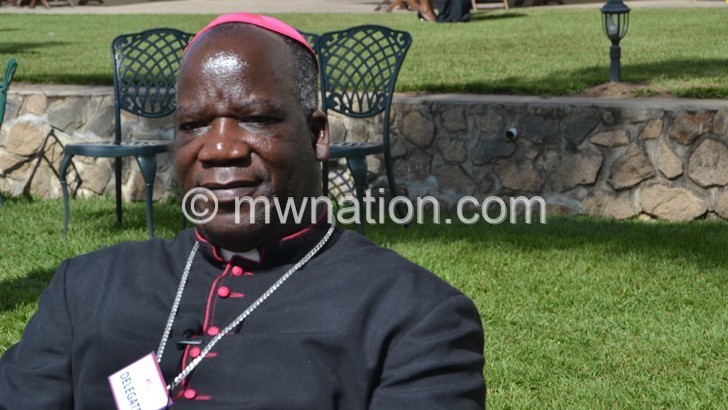81% unhappy with democracy—poll
As Malawians observe 25 years of democracy this week, a majority of them have expressed displeasure with the manner the country has fared since June 14 1993 when they voted in a referendum, a Nation Publications Limited (NPL) opinion poll has revealed.
NPL carried out an opinion poll on its Twitter and Facebook pages yesterday to find out people’s views on democracy as the country attains 25 years since it voted for multiparty democracy.

Although Malawi has conducted five periodic elections to vote into power political leaders, the citizens claim nothing much has happened to uplift their social economic status since changing the system of government from Kamuzu Banda’s one party rule that saw him in power for 31 years.
According to the NPL poll, 81 percent of readers on Twitter expressed dissatisfaction while 18 percent said they were comfortable with the status quo.
On Facebook, out of 102 voters 97 were unhappy; four were OK while one vote was null and void. This represented 98 percent of the sample stating they were unhappy while two percent said they had no problem.
One of the voters Louis Uko wrote: “No [not satisfied]. The reason is simple; there are bad policies aligned to political parties’ registrations and financing. This leads to poverty and destruction of national assets.”
Political analysts have observed that despite the periodic elections and the ratification of a new Constitution in 1995 that contains the Bill of Rights, democracy has failed to uplift ordinary Malawians lives to another level.
Chancellor College-based political analyst Ernest Thindwa argued that Malawi’s democracy has stagnated after taking off well.
“We have stuck in transition. There are a lot of flaws. Currently, democracy is not contributing much to our social and economic development,” he said.
This is an observation shared by Rafik Hajat, a governance expert, who said democracy had failed to transform the lives of the majority of Malawians.
“Democracy governments’ policies have not managed to get Malawians out of the pit of poverty—almost 80 percent of the population lives on less than a dollar per day. Is that a set of statistics we should be proud of?” wondered Hajat.
The 1993 change of politics cannot be talked about without mentioning the biting pastoral letter the country’s Roman Catholic Church issued under the Episcopal Conference of Malawi (ECM).
When contacted yesterday, current ECM chairperson who is also head of the Catholic Church in Malawi, Archbishop Thomas Msusa said he needed to consult fellow bishops on the matter.
However, he said looking at the recent pastoral letter that was issued on April 29 this year “we indicated that there is need to change mentality, which means what we wanted is not happening now.”
On its part, the quasi-religious bodies Public Affairs Committee (PAC) which also played a great role in changing the face of the country’s politics said the feedback from the opinion poll was not strange.
“It is a good baseline for Malawi to monitor the next leaders that will be elected in 2019. Malawians voted for a democratic system during 1993 referendum and they are the best judges of various administrations.
“PAC believes that so far democracy remains a better system despite the shortfalls being observed,” said PAC executive director Robert Phiri.
He said the fact that the voters have noted shortfalls in various leaderships during the democratic dispensation was a reason enough that they should participate more in the next elections by voting.
“Their votes are crucial for they may help stop those leaders they don’t like, and put in power those they think will be transformative in line with their expectations,” said Phiri.
But Thindwa added that political parties as one of the key democratic entities, have remained undemocratic and as a result, leaders who have ruled the country have failed to follow the rule of law.
“Parties are personal entities. That’s one area democracy has a challenge. Parties should be owned by the masses and not personalities,” he argued.
And looking ahead, Hajat said the country has potential to sustain democracy only if its citizens and political leaders change their mindset.
“We have great potential. However, it will only come to fruition if we change our thinking. You cannot practice democracy outside the house if within the house you are a dictator,” he said.
National Initiative for Civic Education (Nice) executive director Ollen Mwalubunju explained that public confidence in politics had been eroded as a result of how democracy has been progressing.
“Poor economic performance, rising corruption, weak opposition, rising cost of living, general decline of social indicators, political violence, are all clear signals of the fact that the state of democracy is deteriorating. In short, Malawi is becoming a failed State, to say the least,” he said.
However, United Democratic Front (UDF) spokesperson Ken Ndanga believed democracy started off well during the formative years when various institutions that help to entrench democracy were laid.
“But now we are entangled in a cobweb of one party culture; our society largely has remained undemocratic and this is affecting democracy because these are the same people who go for political offices,” he said.
Malawi Congress Party (MCP) spokesperson Reverend Maurice Munthali said Malawi’s democracy must be understood to mean that each and every citizen must be accountable, faithful and hard working.
“Our leaders must be examples of servanthood and not masters of the citizenry. We need to regard democracy as a means to uplift people’s socio-economic lives even as we take the country forward,” he said.
But Information Minister Nicholas Dausi noted Malawi had kept democracy alive over the years through its people who have observed the Constitution.





